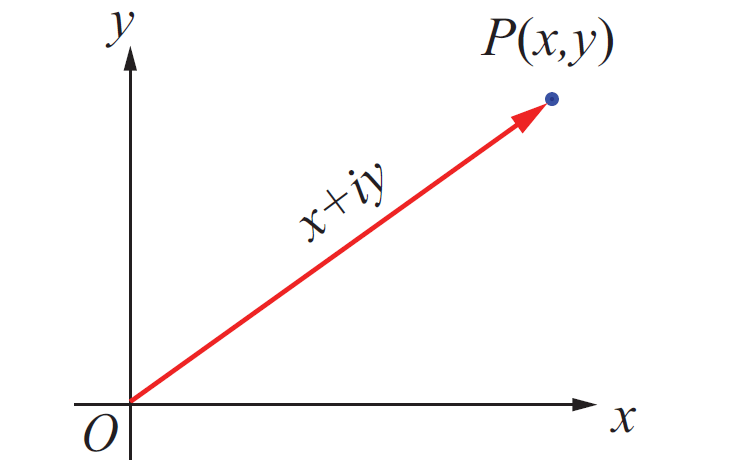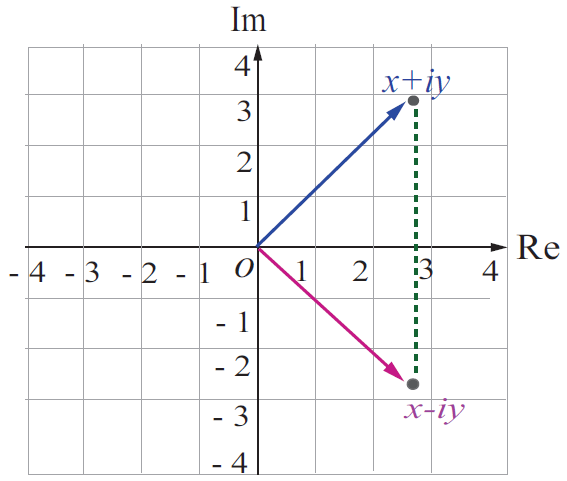MULTIPLICATION FACTS
We have four binary operations in math. They are
Addition, Subtraction, Multiplication and Division
When we use each of the above binary operations, the result may be different.
It is because of the work done by the binary operation that we have between the two numbers. Knowing the work done by the binary operation is called the fact of that operation.
Here, we are going to see the work done by the binary operation 'Multiplication'.
Example :
A teacher wants to gift $20 cash prize to one of the students for his performance in the class.
In case, if the teacher wants to gift the same cash prize $20 to six students, how much does he have to spend ?
To get answer for the above question, we will be writing 20 six times and add them all.
That is,
20 + 20 + 20 + 20 + 20 + 20
Adding 20 six times can be written as (6x20).
Here, the fact what we have to understand is, the result of adding 20 six times is equal to multiplying 6 and 20.
More clearly,
20 + 20 + 20 + 20 + 20 + 20 = 6 x 20 = 120
Therefore, to gift $20 cash prize to six students, the teacher has to spend $120.
Other facts of multiplication :
(i) Commutative property
(ii) Multiplication by zero
(iii) Associative property
(iv) Multiplicative identity
(v) Multiplicative inverse
(vi) Distributive property of multiplication
Commutative Property
Observe the following :
5 x (–6) = –30 and (–6) x 5 = –30
Therefore,
5 x (–6) = (–6) x 5
Therefore, multiplication is commutative for all real numbers.
In general, for any two real numbers a and b,
a x b = b x a
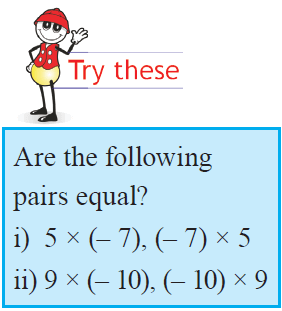
Multiplication by Zero
The product of any nonzero real number with zero is zero.
Observe the following:
-5 x 0 = 0
0 x 8 = 0
In general, for any nonzero real number 'a',
a x 0 = 0 x a = 0
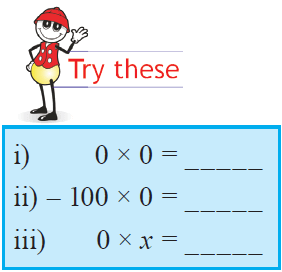
Associative Property
Consider the real numbers 2, – 5, 6.
Look at
[2 x (-5)] x 6 = -10 x 6 = -60
2 x [(-5) x 6] = 2 x (-30) = -60
Thus [2 x (-5)] x 6 = 2 x [(-5) x 6].
So we can say that real numbers are associative under multiplication.
In general, for any real numbers a, b, c,
(a x b) x c = a x (b x c)
Multiplicative Identity
Observe the following :
5 x 1 = 5
1 x (-7) = -7
This shows that ‘1’ is the multiplicative identity for real numbers.
In general, for any real number 'a' we have
a x 1 = 1 x a = a
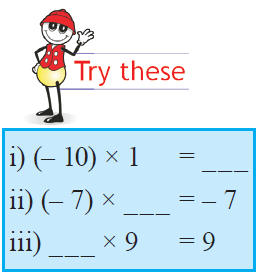
Multiplicative Inverse
For any real number, say 'a', the multiplicative inverse is its reciprocal.
That is, multiplicative inverse of 'a' is 1/a.
For example,
multiplicative inverse of 5 is 1/5
multiplicative inverse of 3 is 1/3
Note :
Multiplication of a number and its multiplicative inverse is always 1.
That is,
5 x 1/5 = 1
Distributive Property of Multiplication
Distributive property of multiplication over addition :
Consider the real numbers 12, 9, 7.
Look at
12 x (9 + 7) = 12 x 16 = 192
12 x (9 + 7) = (12 x 9) + (12 x 7) = 108 + 84 = 192
Thus 12 x (9 + 7) = (12 x 9) + (12 x 7).
In general, for any real numbers a, b, c.
a x (b + c) = (a x b) + (a x c)
Therefore, multiplication is distributive over addition.
Distributive property of multiplication over subtraction :
Consider the real numbers 12, 9, 7.
Look at
12 x (9 - 7) = 12 x 2 = 24
12 x (9 - 7) = (12 x 9) - (12 x 7) = 108 - 84 = 24
Thus 12 x (9 - 7) = (12 x 9) - (12 x 7).
In general, for any real numbers a, b, c.
a x (b - c) = (a x b) - (a x c)
Therefore, multiplication is distributive over subtraction.
Kindly mail your feedback to v4formath@gmail.com
We always appreciate your feedback.
©All rights reserved. onlinemath4all.com
Recent Articles
-
First Fundamental Theorem of Calculus - Part 1
Apr 17, 24 11:27 PM
First Fundamental Theorem of Calculus - Part 1 -
Polar Form of a Complex Number
Apr 16, 24 09:28 AM
Polar Form of a Complex Number -
Conjugate of a Complex Number
Apr 15, 24 11:17 PM
Conjugate of a Complex Number
